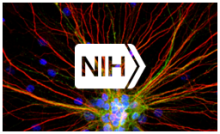
The BRAIN-funded researchers Drs. Vivian Gradinaru, Bin He, Elizabeth Hillman, and Xiaowei Zhuang will be inducted into the National Academy of Inventors 2022 Fellow class, the highest professional distinction awarded to academic inventors.
The National Academy of Inventors (NAI) announced on December 9, 2022 the induction of 169 distinguished inventors to the 2022 NAI Fellow class. The 2022 class will include fellows from 110 research universities, government, and non-profit institutions worldwide. The class also collectively holds over 5,000 issued U.S. patents. The research and entrepreneurship of the 2022 NAI Fellow class spans a broad range of fields that support the transfer of technological innovations to broader scientific communities for the benefit of society. Four BRAIN-funded researchers, Drs. Vivian Gradinaru, Bin He, Elizabeth Hillman, and Xiaowei Zhaung, are among the 2022 NAI Fellow Class.
Viviana Gradinaru, Ph.D., is a Professor of Neuroscience and Biological Engineering, and Director of the Center for Molecular and Cellular Neuroscience at the California Institute of Technology. Dr. Gradinaru's research focuses on developing new neuromodulation methods that allow neuronal activity readout and control tools that are minimally invasive for early intervention and treatment of brain disorders. Through one of her BRAIN grants, Dr. Gradinaru and her team are developing a cell type-specific adeno- associated virus armamentarium for easy and non-invasive implementation of molecular tools designed to understand the nervous system in mammals, including humans. Through another BRAIN grant, Dr. Gradinaru is collaborating with Timothy Miles, Ph.D., to build a new Armamentarium Vector Core that will increase access of these reagents to the research community broadly and to underrepresented minorities (URM) and minority-serving institutions (MSI).
Bin He, Ph.D., is the Trustee Professor of Biomedical Engineering, Professor of the Neuroscience Institute, and Professor by courtesy of Electrical and Computer Engineering at Carnegie Mellon University. Dr. He’s research focuses on the field of neuroengineering and biomedical imaging, including functional biomedical imaging, noninvasive brain-computer interface (BCI), and noninvasive neuromodulation. Through his BRAIN grant, Dr. He’s research aims to investigate the in vivo neuronal cell-type specific response and long-term plasticity effects of transcranial focused ultrasound neuromodulation in both anesthetized and awake animal models. The project promises to better understand the biological and biophysical mechanisms of an important noninvasive neuromodulation technology.
Elizabeth Hillman Ph.D., is a Professor of Biomedical Engineering and Radiology and the Herbert and Florence Irving Professor at the Zuckerman Institute. Dr. Hillman’s research focuses on developing a wide range of multi-scale in-vivo imaging methods including Swept Confocally Aligned Planar Excitation Microscopy (SCAPE) microscopy for high-speed 3D imaging of neural activity and Human brain Optimized Light-Sheet (HOLiS) microscopy. Through one of her BRAIN grants, Dr. Hillman is working to establish a pipeline for imaging entire human brains rapidly and efficiently enough to permit wide-spread analysis and comparison of hundreds of human brains with rich cellular and anatomical detail.
Xiaowei Zhuang, Ph.D., is a Howard Hughes Medical Institute Investigator, and the David B. Arnold, Jr. Professor of Science at Harvard University. Dr. Zhuang is a leader in super-resolution imaging, single-molecule imaging, and genomic-scale imaging; her techniques have shed light on the molecular mechanisms of cellular function. One of her BRAIN grants is a collaborative effort that uses Mutiplexed Error Robust Fluorescent in situ Hybridization (MERFISH) to create a spatially informed cellular inventory of neural circuits in the mouse. Through another collaborative BRAIN grant, Dr. Zhuang aims to develop a transformative multimodal experimental platform to uncover the brain-wide architecture of neuronal circuits underlying parenting behavior in molecular, functional, connectivity-based and computational terms.
The 2022 class of fellows will be inducted at the NAI 12th Annual Meeting on June 27th, 2023, in Washington, D.C.
